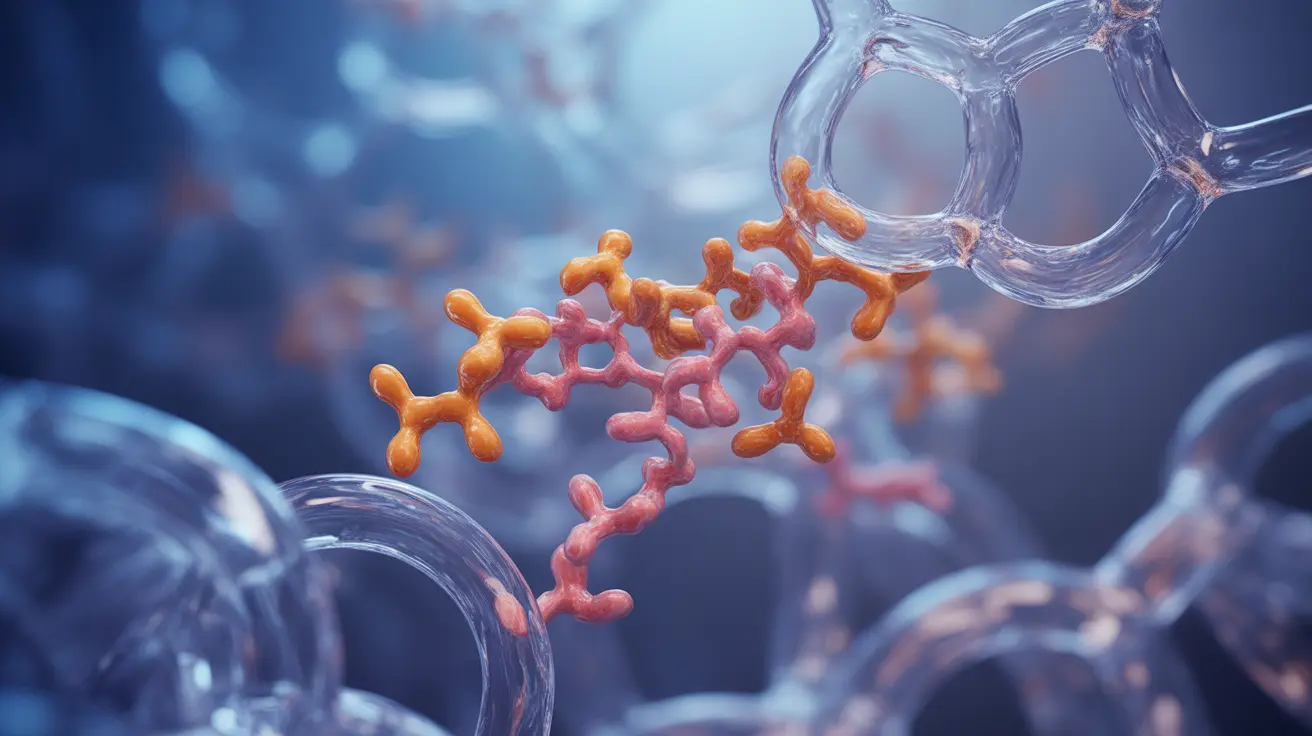Lysine is an essential amino acid that plays a crucial role in supporting skin health, collagen production, and overall wellness. While our bodies cannot produce lysine naturally, we can obtain it through diet and supplements. Understanding how lysine affects skin health and its potential benefits for various skin conditions has become increasingly important in both traditional and emerging skincare treatments.
This comprehensive guide explores the relationship between lysine and skin health, examining its effects on collagen production, wound healing, and various skin conditions. We'll also discuss the latest research on lysine-based treatments and important safety considerations for supplementation.
Understanding Lysine and Its Role in Skin Health
Lysine serves as a fundamental building block for protein synthesis and plays several vital roles in maintaining healthy skin. This essential amino acid is particularly important for:
- Collagen formation and maintenance
- Protein synthesis in skin tissue
- Supporting proper immune system function
- Facilitating wound healing
- Promoting skin barrier function
When adequate lysine levels are maintained, skin cells can more effectively produce and maintain structural proteins that keep skin healthy, firm, and resilient.
The Connection Between Lysine and Collagen Production
One of lysine's most significant contributions to skin health is its role in collagen synthesis. Collagen, the most abundant protein in our bodies, provides structure and support to our skin. Lysine helps form specific portions of the collagen molecule and aids in collagen cross-linking, which gives the protein its strength and stability.
How Lysine Supports Collagen Formation
Lysine works in several ways to support healthy collagen production:
- Acts as a direct building block for collagen molecules
- Helps stabilize collagen structures
- Supports the enzymatic processes necessary for collagen synthesis
- Aids in collagen cross-linking for improved strength
Lysine's Role in Wound Healing and Skin Repair
The wound healing process relies heavily on proper protein synthesis and collagen formation. Lysine contributes significantly to this process by:
- Promoting new tissue formation
- Supporting the development of new blood vessels
- Enhancing the production of healing enzymes
- Strengthening the wound healing response
Research suggests that adequate lysine levels can help optimize the body's natural healing processes, potentially leading to faster and more effective wound repair.
Safety and Supplementation Guidelines
While lysine supplementation is generally considered safe, it's important to understand proper dosing and potential interactions. Common supplementation guidelines include:
- Standard daily doses ranging from 500-1000mg for general maintenance
- Higher therapeutic doses may be recommended for specific conditions
- Best absorbed when taken on an empty stomach
- May interact with certain medications
Always consult with a healthcare provider before starting any new supplement regimen, particularly if you have existing health conditions or take other medications.
Emerging Treatments and Research
Recent developments in lysine-based treatments have shown promising results for various skin conditions. New formulations, such as lysine dendrimers, represent innovative approaches to delivering lysine's benefits directly to the skin. These advanced delivery systems may offer enhanced effectiveness compared to traditional supplementation methods.
Frequently Asked Questions
- What is lysine and how does it support skin and collagen health?
Lysine is an essential amino acid that serves as a crucial building block for collagen production and protein synthesis in the skin. It supports skin health by facilitating collagen formation, maintaining skin structure, and promoting proper immune function in skin tissue.
- Can taking lysine supplements help treat or prevent acne?
While research is ongoing, lysine may help support overall skin health and immune function, which could potentially influence acne development. However, more scientific evidence is needed to definitively prove lysine's direct effects on acne prevention or treatment.
- How does lysine contribute to wound healing and skin repair?
Lysine plays a vital role in wound healing by supporting collagen synthesis, promoting new tissue formation, and enhancing the body's natural healing processes. It helps strengthen the wound healing response and supports the development of new blood vessels necessary for repair.
- Are there any safety concerns or side effects associated with lysine supplementation?
While lysine is generally safe, some people may experience side effects such as gastrointestinal discomfort or diarrhea at higher doses. It's important to follow recommended dosage guidelines and consult with a healthcare provider before starting supplementation.
- What are the differences between lysine supplements and new lysine-related acne treatments like lysine dendrimers?
Traditional lysine supplements are taken orally and work systemically, while lysine dendrimers are advanced topical delivery systems designed to target skin tissue directly. Dendrimers may offer more precise delivery and potentially better absorption of lysine's benefits specifically for skin conditions.




